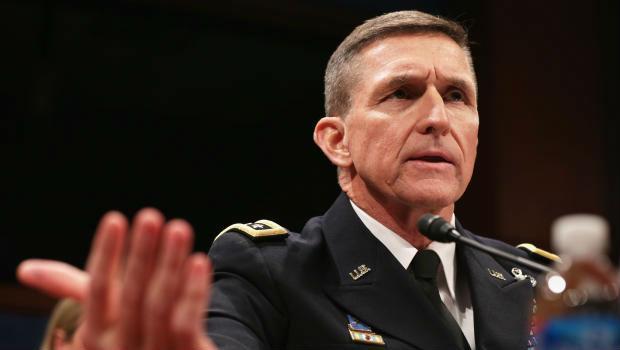Donald Trump's national security advisor under fire after 'discussing sanctions' with Russia before inauguration
Some believe he violated the Logan Act, which bans citizens interfering in US's relations with other countries

Your support helps us to tell the story
From reproductive rights to climate change to Big Tech, The Independent is on the ground when the story is developing. Whether it's investigating the financials of Elon Musk's pro-Trump PAC or producing our latest documentary, 'The A Word', which shines a light on the American women fighting for reproductive rights, we know how important it is to parse out the facts from the messaging.
At such a critical moment in US history, we need reporters on the ground. Your donation allows us to keep sending journalists to speak to both sides of the story.
The Independent is trusted by Americans across the entire political spectrum. And unlike many other quality news outlets, we choose not to lock Americans out of our reporting and analysis with paywalls. We believe quality journalism should be available to everyone, paid for by those who can afford it.
Your support makes all the difference.Donald Trump’s national security advisor is under mounting pressure amid claims he discussed lifting sanctions against Moscow with a Russian diplomat before the then President-elect took office.
Members of Mr Trump’s senior team had originally denied claims that Michael Flynn discussed lifting sanctions imposed by Barack Obama to punish Russia for alleged interference in the US election, when he spoke with the country’s ambassador to Washington, Sergey Kislyak. Vice President Mike Pence was among those to deny that sanctions came up in the conversation in late December.
But after nine former or serving intelligence officials told the Washington Post that Mr Flynn had conveyed to Mr Kislyak that the relationship between the US and Russia would change after Mr Trump took office, Mr Flynn changed his stance. Having initially denied the claim, a spokesman subsequently sold the newspaper that “while he had no recollection of discussing sanctions, he couldn’t be certain that the topic never came up”.
On Friday, as outcry over Mr Flynn’s actions grew, the White House was dragged into the issue, with a senior official telling the Associated Press that the national security advisor “can't be certain” that sanctions were not discussed.
David Corn, Political Editor of Mother Jones, told The Independent, it was now clear that Mr Flynn had not only discussed sanctions with Russia – something that would potentially breach US law – but then misled the public and the media about the conversation.
“It’s a real scandal. The national security advisor has been both dishonest and dumb,” he said. “He was discussing things with the Russians, without realising that such calls are under surveillance.”
He added: “I think he should be fired for this.”
Mr Pence was strident in his defence of Mr Flynn when he appeared on CBS’s Face the Nation last month.
“It was strictly coincidental that they had a conversation”, as new sanctions were announced, Mr Pence said. He insisted the discussion did not address the Obama administration’s decision to impose sanctions on Russian intelligence services and expel Russian 35 diplomats it said were actually intelligence operatives.
Mr Pence also said the Trump presidential campaign had no contacts with the Russians ahead of the election. Mr Pence’s office has now been forced to say it was now looking again at the issue.
One former senior US diplomat who asked not be named, said it was not unusual for incoming administrations to talk to countries such as Russia, before coming into office. He said it was also unclear at this point what precisely Mr Flynn had discussed.
However, others had pointed out that Russian President Vladimir Putin surprised observers when he did retaliate in kind against the US for the expulsions, a decision Mr Trump quickly praised on twitter.
After US officials first revealed Mr Flynn’s calls last month, aides to Mr Trump originally denied that a telephone conversations had even taken place on 29 December. Hours later, an official acknowledged one such call.
Mr Trump has long made clear his desire for a reset in the relationship between the US and Russia, saying “having a good relationship with Russia is a good thing, not a bad thing”. Yet others have condemned him for failing to comment on human rights abuses in Russia, or Mr Putin’s expansionism in places such as Crimea and eastern Ukraine.
Join our commenting forum
Join thought-provoking conversations, follow other Independent readers and see their replies
Comments